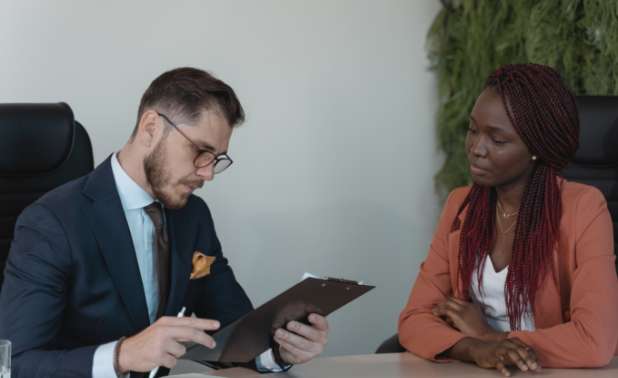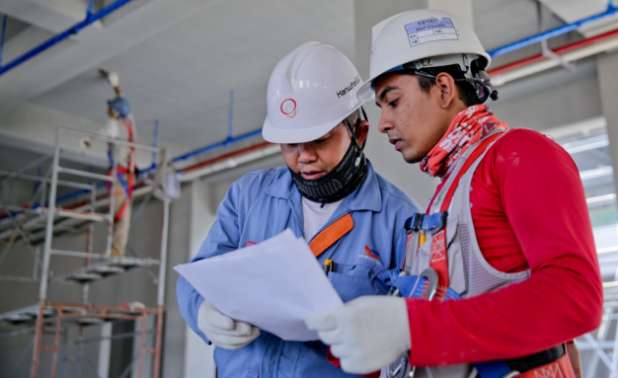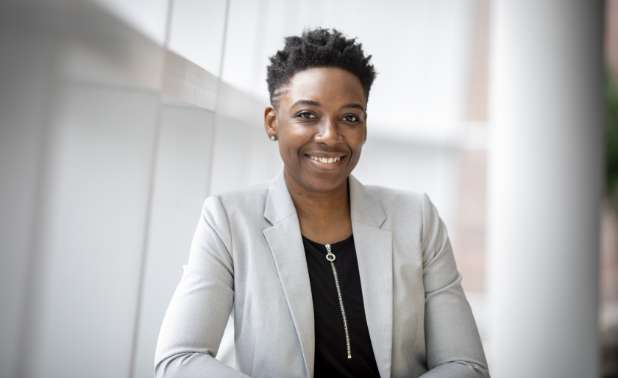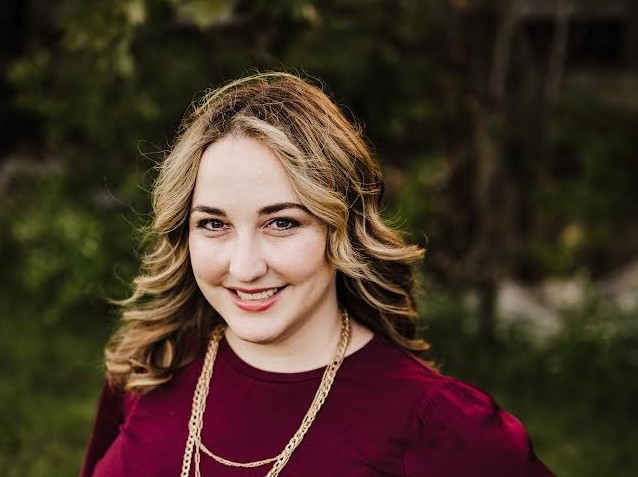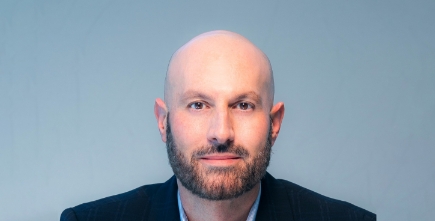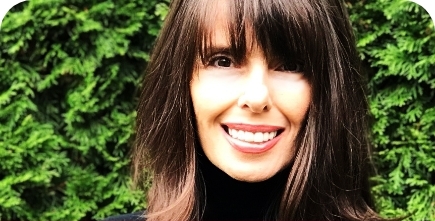Kamela Forbes:
Welcome to another exciting episode of But First People, a podcast presented by Pride Global that dives into the remarkable diversity of the world of work. I’m your host, Kamela Forbes, and in today’s episode I had the pleasure of speaking with none other than Angela Westhead. Angela is a seasoned contingent workforce practitioner and a passionate advocate of diversity, equity, and inclusion. As the manager of contingent workforce and BPO at Zendesk and previously a Twitter, she brings nearly a decade of expertise in non-employee labor management to the table. She’s widely known for fostering an environment of authenticity in the workplace. She balances all these professional endeavors with the joy and responsibilities of being a mother to her beautiful six-year-old daughter.
In this episode, we dive into the fascinating intersection of diversity, equity, and inclusion and parenting and caregiving. We talk about inclusivity in relation to parenthood and the importance of implementing policies that go beyond the traditional boundaries of race and gender. As well as what strategies and programs companies can adopt to retain and support this wider range of diverse talent. Angela also shares a very personal journey of co-parenting with an LGBTQ individual and offering a unique perspective on the challenges and triumphs she’s encountered along the way. And furthermore, we touch upon parenting practices for individuals from diverse backgrounds and explore ways to impart lessons about diversity, empathy, and respect to our children in this wonderfully diverse world we live in. So get ready for this enlightening and thought-provoking conversation. Welcome to the show, Angela.
So Angela, one of the cool things we do here at Pride Global is that every Monday we have an all hands meeting, and at the end of that meeting, every new employee that’s joined the company, we ask them to sing. We ask them to sing about 30 seconds or 15 seconds of a song. And it’s a great way for us to get to tell about people’s personality, a way to encourage them to feel at home in this family. Whether you’re a great singer or an not so great singer, we accept you whichever way you come to us. And so with that, I would love to invite you to kick us off with a song of your choice. What song speaks to you and that you want to just dive in and be like, I just want to sing or dance like no one’s watching.
Angela:
Okay. Well, I’m a big Taylor Swift fan, it’s an integral part of my personality at this point, I think. And I went to the concert in Tampa in April. I’m still like riding the high of being with 80,000 people, so we’re going to kick off with a Ready For It, which is kind of like a rap sing.
Kamela Forbes:
Go right, well, I’m ready for it. Let’s go.
Angela:
Here we go. “I knew he was a killer first time that I saw him, wondered how many girls he had loved and left haunted, but if he’s a ghost, then I can be a phantom holding him for ransom. Some boys are trying too hard. He don’t try at all though. Younger than my exes, but he act like such a man. So I see nothing better. I keep him forever like a vendetta, ta, ta.” I can’t believe I just did that.
Kamela Forbes:
See, how good did that feel to just let all your inhibitions go and toss caution to the wind and just be you?
Angela:
Yeah, that’s good. It’s needed to shake that off. No Taylor Swift pun intended this morning.
Kamela Forbes:
Oh, well that’s great. I love this. So as I talk to guests, my first question just is always why? What is your why? You have done so much, you’re so passionate about DE&I, and I just wonder what inspires that passion.
Angela:
Yeah, I mean, I think I’ve always kind of been wired for empathy and connection, but what really kind of blew that wide open for me was becoming a mom, specifically, becoming a single mom, having a daughter, and then unexpectedly getting divorced after eight years of marriage, kind of gave me a front row seat to the struggle in the world and eliminated my privilege. My daughter was about a year old when all this happened and all of a sudden over half of my household income was gone and it was incumbent on me to pay all the bills and take care of my daughter.
And I realized then I did an okay job at it, but I realized how much different my life could be from how I showed up in the world as a white, cisgender, college educated woman was really illuminated for me when I was on a work trip and I accidentally saw the pay rate of one of my male colleagues and he was making about 20% more than me. And that just really felt like a gut blow to me in that moment because I knew we were doing the same job. I was a little bit more senior, and yet somehow he was taking home more money than we illuminated for me that the world’s not really set up to support single parents in the business world, or maybe just parents in general.
So that kind of opened my eyes to the fact that there’s more work to do in order to support parents and moms and people who don’t show up as maybe just cisgender men. I don’t want to call them out too hard here, but that illuminated that for me. So motherhood for sure.
Kamela Forbes:
That’s amazing. And I think, you bring up something. First of all, thank you so much for opening with so much vulnerability. I think that’s such a strength that a lot of people don’t embrace as much, so thank you for that. But you also highlight something that just shows how life could change at any moment and your privilege, your acknowledgement of having that privilege is so brave. And I think that’s the first step for people to be able to have that awareness, acknowledge where they’re at, acknowledge where they have that privilege, and then figure out what we need to do to give back, or how do we look at other people and recognize that they don’t have that, and what kind of policies or plans or initiatives we need to put in place to make sure that there is equity and inequality for all.
Angela:
Yeah, I think that being able to be vulnerable is a part of privilege too, right? Because there’s less for me to lose in a lot of ways. I feel safer showing up in the workplace and being able to take the risk to be vulnerable. And that is wrapped into part of my privilege as specifically a white cisgender woman.
Kamela Forbes:
Not everybody has that, and that’s what we’re working towards. And that’s one of the reasons I was so excited to have you on this podcast because when we first met, we immediately dived into such a spirited and insightful conversation about DE&I, and one of the things we touched on was how in today’s world DE&I is so much more than just race and gender and under that DE&I purview, we today talk about things such as socioeconomically disadvantaged or ageism or caregivers, just to name a few. And in one of your previous roles, you chaired the parenting ERG. So can you share with us a little bit about your view on caregiving, of parenting being a dimension of diversity and maybe how you embraced and nurtured that as that chair of that ERG?
Angela:
Yeah, I loved that. That was one of the most enriching parts of my career. And the cool thing for me about parenting or caregiving as an element of DE&I, is that it’s so intersectional. There’s so many opportunities to work with other people because a lot of people, almost everybody has somebody that they care for or that they parent or that they take care of. It’s something that we all have baked into our personal lives. So the best example of that for me was our initiative to educate our children cross-functionally with a lot of our other cultural ERGs. So we did a really fun holiday book reading club where we contacted all the other ERGs. We had a Latinx ERG, a Black ERG, Jewish ERG, all kinds of different people, and we calendared holiday book reading. So we’d ask a representative to select a children’s book about whatever holiday they were passionate about, and then come onto a Zoom with our children and read the book and answer questions.
At that point in time, we also had the funding that we were able to send the books to the children that attended the event. So our children started building these really beautiful multicultural libraries about holidays and about other cultures. And the impact for us was immediate. It was really cool to see my daughter start educating my mother on other cultural holidays. Specifically, the one that sticks out in my mind Diwali. We have a large population of Indian people in my neighborhood, and they started decorating their homes for Diwali. And my mother said something to the effect of, "Oh, the neighbors have the Christmas lights out early." And my daughter stepped in and immediately was like, "Actually, it’s Diwali and it’s the Festival of Lights, and that’s what they do." And gave her a quick primer on the holiday. And it was really cool because she’s growing up in a world full of different people and she’s able to recognize and celebrate them.
Kamela Forbes:
That’s really cool. I mean, I love it. And that’s so inspiring about these next generations that we’re raising and they’re going to be in such a different world and see things so differently than we did. And that’s really inspiring to me. What a great takeaway for anybody listening that could implement such a initiative within their ERGs because it’s phenomenal talking about that intersectionality and cross collaborating with ERGs that is so key.
Angela:
And not just ERGs too. I mean that particular one had a financial cost to it, right? Because we had to purchase the books for the children, but there were a lot of activities that we bootstrapped too and just sort of created on our own. At Twitter specifically, we had a really deep bench of people that worked the employee wellness center. So I built relationships with them and we were able to put together content around nutrition, meal planning, supporting parents with meditation, with how to take breaks from stress. I mean imposter syndrome training too for parents, which especially for a single parent in tech, you do oftentimes feel a little bit like, why am I here? I don’t feel like everyone else. So leveraging those internal resources to create meaningful training and build meaningful community was something that I feel like anyone can really do as long as they’ve got some kind of internal support to spend the time to do it.
Kamela Forbes:
That’s really powerful and hope that a lot more companies get on board and do exactly that. And in the DE&I world, we talk a lot about equity versus equality, and when you think about caregivers, they’re definitely a group where we need to ensure that we are being inclusive and making sure that we have policies in place to provide equity. What are some policies or programs that you would recommend companies take to be inclusive and to retain this demographic of talent?
Angela:
So the first one I think is the easiest one, and it’s building community. And maybe that’s a little controversial because maybe building community isn’t always the most easy for everyone. But it’s things like implementing ERGs or BRGs where people can use communication channels like Slack or impromptu meetings to lean on each other for support, to ask for help to bond over shared challenges and shared experiences. With a little bit more investment and money there are some other things that can come along too. So flexible schedules, remote and hybrid work are super key. I would not be able to be the hands-on involved single mom that I am now and still be able to provide a home and food and money, all the things we work for outside of our career passions to actually fund our lives. I wouldn’t be able to do that and be the mom that I want to be without being able to have a flexible schedule and work from home.
I also saw a lot of value in some family coaching services that were offered at Twitter, specifically a company called Cleo was a really interesting benefit because they had a whole bunch of different coaches from all types of parenthood, from babyhood all the way up to dealing with teenage and college aged children. And coming from a somewhat non-traditional family set up, I was able to leverage my Cleo coach to get information about how to navigate putting my daughter into public school and how to enable conversations about what our family looks like and how to navigate the world as a single parent who does most of the hands-on parenting herself with help from that coach, which relieved a whole lot of stress for me.
Kamela Forbes:
Talk about some tangible takeaway tips. Again, I love the fact that some of them yes, require some financial investment, but some of them don’t, right? So you could start somewhere, you could start small and build and grow and find alternatives, but it’s just that thought about being inclusive. What could I do to make life a little bit easier so that our employees feel like I care about them and they could actually just have the peace of mind and the resources they need to do their job and do it well.
Angela:
Yeah, that peace of mind is so key. I think one thing that I’ve realized as being a working mom, especially in a high stress environment, is that I can’t always be both. I can’t be Mom and employee in the same space. I have to have the head space to be present and be Mom and then switch modes and be employee. And that’s much easier to do when I feel like my child and our security are being taken care of.
Kamela Forbes:
That gives you the space, that peace of mind to move and then step into your other role.
Angela:
Exactly.
Kamela Forbes:
I totally understand because we’re both moms to precious little girls. And I guess my question here for you is how important is it for parents to expose their children to diversity at an early age?
Angela:
I think it’s so important, and I honestly think it’s one of the greatest gifts my parents gave me was having me be integrated into the people that they knew that were different from us. So podcast audience can’t see necessarily, but again, I am a white woman, and so it was very important to my parents to make sure that I saw people that looked different than me, that acted different from our family. My parents were in industries that were very well integrated, so there were a lot of work events with people of different races and religions, and they also encouraged me to go to synagogue with my Jewish girlfriends. And we’re a big foodie family, so any kind of celebration they could find where there was food involved, you could probably find my parents taking my sister and I there.
My one thing that I’ve tweaked as I’ve gotten older is my parents came from an angle of people, our people were all the same, and I think given the time period that was the best that they thought that they were doing for exposing us to be like, "Hey, people are people, we’re going to enjoy each other. We’re going to be around each other, and there’s no difference between us."
For me, as I’ve moved through the world and become a parent, I take the lens that we want to be consciously inclusive of differences and celebrate them. So I want her to see that, hey, we are all humans, but we do things a little differently and that’s okay. And be aware of differences and how we all show up differently in the world. I think that’s going to raise her to be a global citizen and be able to function well in the world and be inclusive and thoughtful as she grows into an adult.
Kamela Forbes:
Oh, I love that. One of the things for me is kind of pet peeve when I hear people say, "Oh, well I don’t see color." And I’m like, "Yeah, you should because we all are different colors." Let’s acknowledge that and let’s embrace that. And so you should see the color. Let’s recognize and let’s recognize that all the different colors do things a little differently. And while they have different cultures and heritages and practices and traditions, there are some and a lot of things that are very similar, but let’s recognize the things that are different. Let’s recognize the things that are similar and then celebrate those differences and find the similarities that are able to bring us together. So I think that’s really beautiful that you encourage her to recognize that we all are, while we’re all humans, we are different. And I think that’s beautiful.
Angela:
I think it comes back to privilege again too. You may be privileged enough that you don’t need to see colo. Need in air quotes there, but it doesn’t mean that other people don’t. It doesn’t mean that other people don’t see it and operate in that way. So again, it comes back to being consciously inclusive, to think and be inclusive in a simple way.
Kamela Forbes:
So it’s one thing to just say that you talk about raising a global citizen, but what are some practical ways that parents can teach their children about different cultures and backgrounds and actually help their children develop empathy and respect for others in a diverse world?
Angela:
It comes back to exposure again for me, and actually when you and I were talking, you gave me a wonderful idea regarding Juneteenth, about taking my daughter to a parade or a celebration, exposing her to that activity and having her ask the questions about why does this celebration matter? Putting it in real life, having her see actual people celebrate and enjoy themselves and talk about the meaning behind the holiday. It’s real life exposure.
My struggle with that maybe is that I want to be able to take her to see things and explore them without appropriating them. So that’s kind of the line that I walk while I explore that particular concept. The second thing is a concept that my friend Mish posted about recently on LinkedIn, and that’s practicing what you parent. So that one really hit me right in the heart because I think a lot of times as parents, we think that we only have to behave in a certain way when our children are watching, but it’s much more than that.
So if I’m trying to raise an inclusive conscious child, then I have to be invested myself in learning about others and being a good ally day to day, even when she’s not watching. And that includes monitoring things that she’s exposed to or things people say around her.
So key example of this for us is that we don’t allow hurtful language in our home. So I define that as words that hurt other people or make them feel like they’re less than human. That’s not allowed, even as a joke in my house, to the point where I’ve had to police some grownups on what language they’re using around my child because I want her to know that this is an authentic family rule, that we take care of our fellow human, and we have woven those into the core of how we operate as a family. So just making sure that I am being an ally, that I’m being my best self, that I’m being inclusive when she sees it and when she doesn’t see. It’s truly key of being part of our family unit.
Kamela Forbes:
Oh, I love that practice what your parent. It’s like the new golden rule, right? Because they see what they see, and kids are so smart, they pick up on what you’re putting down. And if you’re not authentic, I think they could definitely see through that. So I think that’s really, really important.
Again, when I think about your vulnerability and your transparency, and we always encourage people to bring their true selves, I think you’re sharing that unexpectedly your family became a LGBTQ family as your co-parent identifies as non-binary. What would you say some challenges parents might face when raising kids in these modern families in air quotes? How can people overcome them?
Angela:
Yeah, it was definitely unexpected. I was married to my ex for almost a decade and one day they shared with me that they were non-binary and they would no longer be identifying as he him, and definitely was not something that I ever anticipated tackling, especially at that point with a newborn. So I unwittingly helped myself out a little bit by starting from a place with my daughter of all families look different. We’re lucky enough to live in a part of the world where there’s a lot of families that are different looking than just like the mom, dad, and two and a half children and a dog.
Kamela Forbes:
And the picket fence.
Angela:
Yes, exactly. Exactly. And we started with that. So she kind of was prepared for that mentally that families look different, but they’re bound together by love and respect for one another. I think that I’ve been able to drive that home in action by having an open door policy with my ex-spouse and their new wife with the appropriate boundaries in our home. We do things together a lot. We play ROBLOX together, all four of us, which is fun sometimes. We have holidays together, we attend events together for my daughter. It’s not always been super easy to do that, but it’s key for me that she understands that a family is not just bound by marriage necessarily. And I also wanted her to understand that she was not the go-between between two families. She is part of one larger family, and that stems from a decision that I make as a parent and that my ex makes as a parent, that we’re committed to supporting our daughter as our first goal. So just being really clear that families look different has been a really, really strong starting point for us.
The challenge that I have currently that I don’t really have a good answer for is that at the moment, living in Florida, we have a lot of anti-trans, anti non-cisgender legislation and sentiment that’s going around. And it’s very difficult for me because I feel like I want to challenge my daughter to be authentic and true to herself and not scare her that there are people that don’t necessarily support her other parent or maybe even support her relationship with her other parent. And I don’t want to put her wonderful, smart, caring teachers at risk as well with some of the other legislation about what can and can’t be said in schools.
So all I can do right now is just to encourage her to lead with empathy and honesty and not shy away from addressing big questions that she has with age appropriate answers. And if I can help her be open and curious and encourage other people to be open and curious, maybe we can disarm some of the less kind folks that are out there in the world.
Kamela Forbes:
That is a big challenge and hopefully one collectively we’ll work on and maybe see some progress on and in their future hopefully. But I think just something that you said is I think people are struggling to say, well, how do you promote positive self-identity and self-esteem and how do you do it for your daughter? And what advice could you give to parents who may be raising kids who feel different from their parents?
Angela:
This is a live action question for me because it’s going on right now, and I think it goes back to the practice what you parent concept again. For me, I’ve struggled with my own self-esteem since I was a child. I mean specifically around body image and recently in pregnancy and a thyroid problem and the general chaos of the last five years in my life and in the world, I’ve been really struggling with feeling like whole and present in my own body.
So I’ve been leaning into modeling and being vocal about what I like about myself. Things that maybe aren’t standardly beautiful I would call them out and say, "Hey, I’m really proud of my body for supporting me in a workout or supporting me at work, or really proud of my brain for helping me come up with the answer to X problem." And trying to really be authentic about the compliments that I give myself so that she can see that I care about myself and I take care of myself as I am so that she will want to do the same and she won’t feel like she needs to change to fit into some specific type of mold to be a part of society. That’s been challenging.
I also try to lean into her interests with her, which has actually been a really fun. She’s six now, so she’s got a lot of her own little special interests that are starting to pop up as she moves through the world as her own person. So like all children right now, she’s super into YouTube and really wants to make a YouTube channel.
Kamela Forbes:
At six?
Angela:
Yes. I don’t really know how I feel about that.
Kamela Forbes:
You have a techie in the making there, huh?
Angela:
I guess so. I guess that’s what happens when you have a mom that works in tech. So made a YouTube channel together. Now I put it on private so no one can go find it, but we went on a little trip around town, we went to Disney to see the Christmas trees, and I recorded her doing what she wanted to. I put it in a little video editor and put it on YouTube. So she’s thrilled. She has her own YouTube channel, and I can just see how that made her glow internally and externally. She felt seen, she felt heard. She felt like, “Mom is invested in me.” And I hope that by being that supportive person to help her go after her dreams with those Mom guardrails in place, that I’m going to raise her to be a confident, intelligent, independent woman who can move through the world and do whatever she wants to do and not feel beholden to somebody else’s expectations of what she should be doing.
Kamela Forbes:
That is such great positive inspiration for kids and adults alike. And you mentioned unexpectedly becoming a single mom over the past few years. What would you say are some issues you want to highlight as a single parent that employers should be aware of around creating policies to support this demographic?
Angela:
I think going back to my time at Twitter, one of the things that I’m most proud of was the team that I worked on our 2021 hack week project with. We made this really awesome plan called the Maternity Program, which was a transition plan for people who were going on parental leave.
And it’s shocking to me, and it’s also kind of not shocking given that parental leave in the United States is a little dicey, that there’s not more structured support for people who are going on parental leaves. Especially the single parents, right? Because the economic impact of being out of work and the fear of maybe not having something to return back to or how to return back to it is a very real thing.
So this program that we developed was wonderful. It included documentation on how to hand off your work, what communication cadence, if any you wanted to have while you were out, and then a plan for coming back to work as well, how to slowly transition back in, how to have your resources set up that the company offered the Cleo coach or lactation support or flexible or hybrid schedules.
All of these things were documented and ready to be handed to you when you went on a leave. We also included a plan for training, for hiring our line managers about how to have these conversations about leave, about how to prep your team. And then I am in the contingent workforce space, so there was a contractor sourcing and support plan built in there. I had to had to drop that expertise in as well.
And it won, and it got a lot of really wonderful internal support. And we actually started the process to roll this out at Twitter, but change of management... Didn’t quite come to fruition. But again, back to the flexible schedules and remote work, super key. I know there’s a lot of people that are experimenting with job share right now, which not all single mothers are able to work a 40-hour week, but still need to have some kind of income or stay in the workforce to keep their skills fresh. So offering a job share, offering a hybrid, that’s super key.
Fertility benefits, that is something that as I enter my mid to late thirties, a lot of my girlfriends are questioning if they don’t have children already or if they want to have more children, “should I freeze my eggs? Should I freeze embryos?”
And especially those of us that are single, we may want to go ahead and freeze our eggs and then make the decision. The choice to be a parent or the choice not to be a parent is such a powerful one. And it can absolutely be enabled by support or something that’s really expensive, like a fertility treatment or a adoption support just to enable us to be in control.
And then finally, community, again, that’s a free or lower lift one I think for a lot of enterprise businesses. But I can’t tell you how many times I’ve slacked somebody I’ve seen that’s come back from leave that’s just kind of nervous about coming back in, where I’ve gotten slacks from people I know that are coming back because they know I’m willing to talk to them about their journey for coming back to work. And it just makes it easier to hear somebody say like, "Hey, you’re doing a good job," or "It’s going to be okay. It’s going to be a rough couple of weeks, but you’ve got this." Just having that built in support with someone who’s been there or someone who has an empathetic ear, enabling that community is super important for inclusion.
Kamela Forbes:
Oh, I know. I absolutely needed it when I got back because just even thinking of leaving your kid with somebody else, a caregiver and it’s not you, and you still trying to figure it out, and there’s so many moving pieces to that puzzle. So I think to your point, just having somebody who’s already been through it, who could talk you through it, just help alleviate some fears, commiserate with you is just super important.
Angela:
And that was part of the maternity program too, I forgot to mention that was there was a community element to it as well of matching you with either a cohort of people that had children or adopted children around the same time, or with, I’ll call them a more senior mom or dad, someone who’s been in the trenches that can kind of help provide that additional support. I mean, you’ve got to seek those people out unless you’ve done the work to find a database of people that are willing to do that. But it’s so powerful to have that support live one-to-one with someone who understands.
Kamela Forbes:
Oh, well, I could tell throughout your career you’ve been passionate about this. You’re a working mom, you’re clearly a DE&I advocate. As you look back on all that you’re doing and have done, what do you want your legacy to be?
Angela:
I oftentimes think of the Kamala Harris quote, “the first but not the last,” and that’s maybe a little bit of a sub quote there. I’m not sure I have it exactly right. But I think that anything that I’ve been through that I can make a little bit easier for other parents, especially single parents that come along, I want to be able to do that.
Early in my career, I noticed there were a lot of people that kind of had the attitude of, well, I did it that way, so you’re going to have to do it this way. I don’t think that’s particularly helpful, and I don’t think that moves us further as a society. I remember having a 12-week unpaid parental leave and then being on a plane to San Francisco two weeks after my leave ended. And that was so hard, and I don’t know how fair that was to me or my daughter or building the foundation of having a healthy family, thus creating another healthy adult to join society.
So I would like to take whatever scope of influence that I can have and try to make the world a little bit easier for people who choose to have children. I also kind of hope that my daughter sees the fact that I can leverage some vulnerability and share our story to make the world a little bit more inclusive and equitable. And I hope that that creates another woman who isn’t afraid to talk about the things that have happened to her and do some good in the world. So she’s my little legacy, I think.
Kamela Forbes:
I must say, Angela, I have goosebumps. I mean, this was so heartfelt and passionate and authentic and vulnerable, and I really, really enjoyed having this conversation with you. I hope our listeners are as inspired to take some of these very actionable tidbits from what they could do in the workplace to what they could do at home, to what they could do in the world, and to each one, figure out how they could make a bit of an impact and leave their legacy. So thank you so much for being here. Thank you for sharing. Thank you for all the parenting advice, and I know I’m definitely soaking it all up, but appreciate you being here.
Angela:
Thank you,
Kamela Forbes:
Angela, thank you so much for all of the incredible insights you’ve just shared with us and for being so vulnerable and sharing your story. And of course, thank you to you, our listeners, for tuning in today. If you’re interested in learning more about Pride Global, please visit our website at www.prideglobal.com. And should you have any questions for either Angela or myself, feel free to email us at butfirstpeople@prideglobal.com. But of course, don’t forget like, share, rate, and subscribe to our podcast.
Thank you for listening, and we look forward to seeing you on our next episode.



